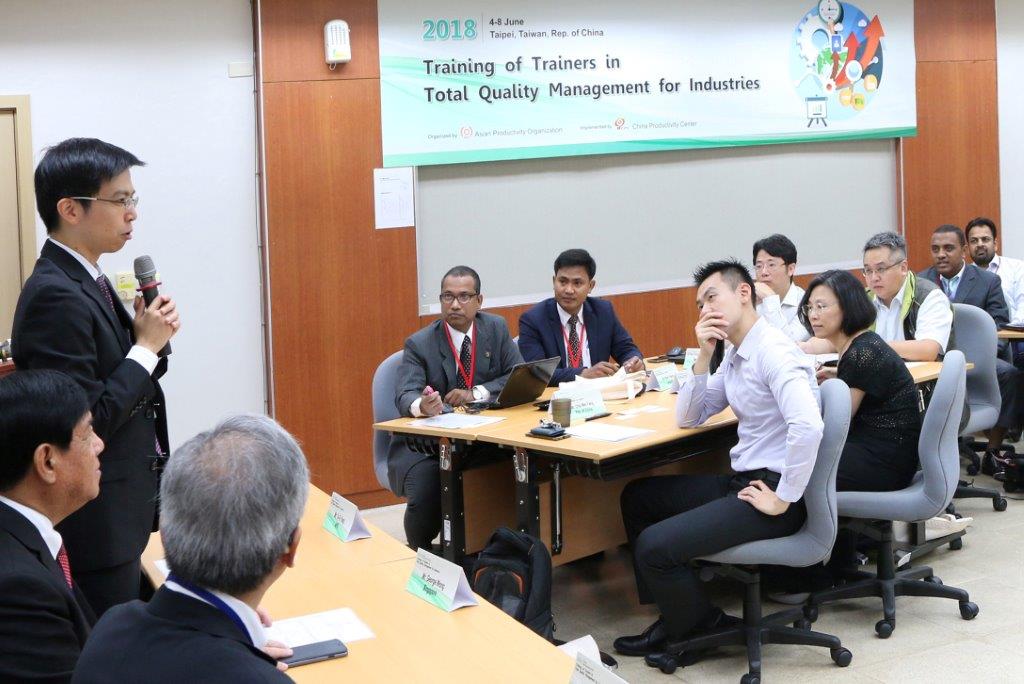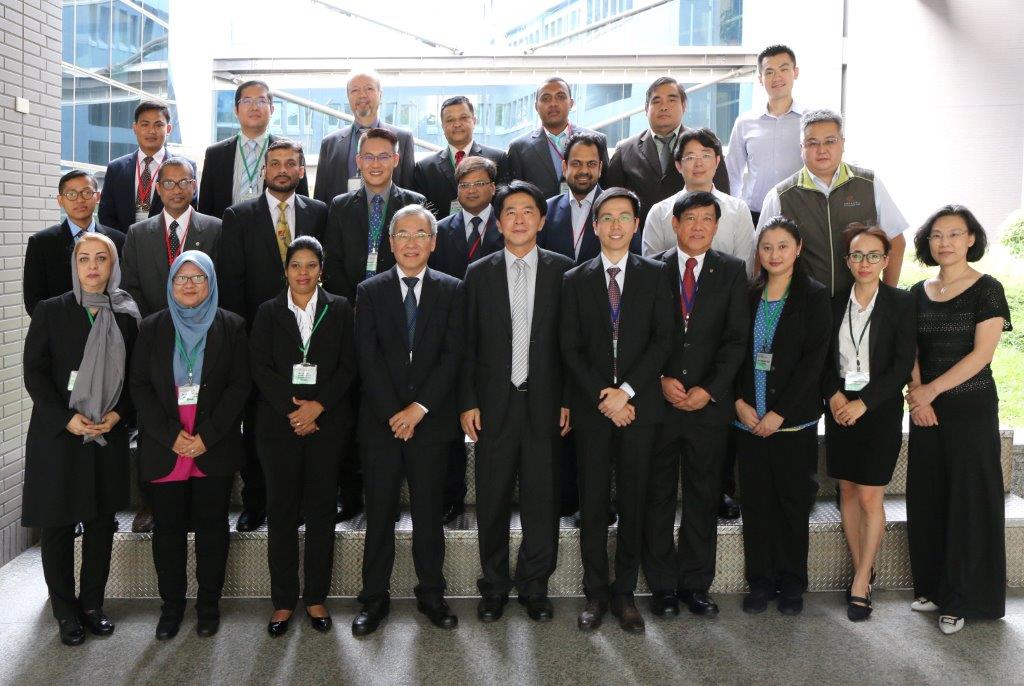
Select Page
In response to member countries’ need for fundamental productivity enhancement methodologies and understanding their implications in the Fourth Industrial Revolution, the Asian Productivity Organization (APO) organized a training-of-trainers workshop in Total Quality Management (TQM) for Industries in Taipei, 4–8 June 2018, in collaboration with the China Productivity Center (CPC).

The five-day workshop was inaugurated by Dr. Eugene Y. Lin, Director, Office of the APO Director for the Republic of China (ROC), CPC, while APO Secretariat Industry Department Program Officer Ta-Te Yang delivered the welcome address. The training, attended by 21 participants from 12 APO member countries, focused on the concepts and implementation of TQM. It also demonstrated practical experiences and applications in the ROC, Japan, and Singapore, and participants were familiarized with their implications for organizational excellence and connected industries in the Fourth Industrial Revolution.
TQM is a classic management methodology with a focus on quality control, improvement, and customer satisfaction. It emphasizes the importance of process standardization, quantitative analysis, and staff participation, while incorporating methods for comprehensive management. It also provides a foundation for advanced management approaches, such as lean manufacturing and Six Sigma, and includes elements such as business excellence and national quality awards.
The delegates visited Ko Da Pharmaceutical, a dedicated TQM practitioner and winner of the ROC’s National Quality Award, where they observed how leadership, policies, and TQM implementation contributed to a quality and innovation culture and productivity improvement.
The workshop was conducted by two APO international experts: Japan Productivity Center Counsellor Hiroaki Miyahara; and Hoclink Managing Director and Principal Consultant George Wong of Singapore. As an experienced management consultant and organizational executive, Dr. Lin also spoke on TQM practices in the ROC from the perspective of business process management.

Photos: CPC